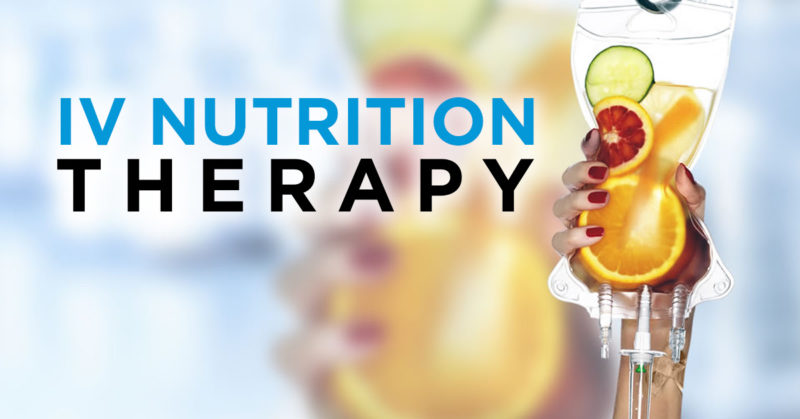Intravenous (IV) nutrition therapy is a growing wellness trend that offers a direct method for delivering essential nutrients to the body. By bypassing the digestive system, this therapy allows for immediate absorption of vitamins, minerals, and other nutrients, making it particularly beneficial for individuals who struggle with nutrient absorption due to health conditions such as gastrointestinal disorders or chronic fatigue.
This article explores the fundamentals of IV nutrition therapy, its mechanisms of nutrient absorption, the benefits it provides for health and vitality, and important safety considerations. Whether you are considering IV therapy for enhanced wellness or seeking solutions for specific health concerns, understanding these aspects can help you make informed decisions about your nutritional needs.
In this article you will find:
Understanding IV Nutrition Therapy Basics
Intravenous (IV) nutrition therapy has emerged as a popular wellness trend, offering a direct method to deliver essential nutrients to the body. Unlike traditional oral supplementation, IV therapy bypasses the digestive system, allowing for immediate absorption of vitamins, minerals, and other nutrients into the bloodstream. This method has gained traction among health-conscious individuals seeking to enhance their overall well-being and vitality.
What is IV Nutrition Therapy?
IV nutrition therapy involves the infusion of a customized blend of nutrients, fluids, and electrolytes directly into a patient’s bloodstream through a vein. This approach is particularly beneficial for individuals who may have difficulty absorbing nutrients through oral intake due to various health conditions, such as gastrointestinal disorders, chronic fatigue, or dehydration.
How Does IV Therapy Work?
The process of IV nutrition therapy begins with a thorough assessment by a qualified healthcare professional. During this assessment, the patient’s specific nutritional needs are evaluated, often through blood tests and medical history reviews. Based on this information, a tailored IV solution is prepared, which may include:
- Vitamins: Commonly infused vitamins include Vitamin C, B-complex vitamins, and Vitamin D, each playing vital roles in energy production, immune function, and overall health.
- Minerals: Essential minerals like magnesium, calcium, and zinc can be included to support various bodily functions, including muscle health and metabolic processes.
- Amino Acids: These building blocks of protein can help in muscle recovery and overall cellular function.
- Hydration: IV therapy also provides hydration, which is crucial for maintaining optimal bodily functions.
Why Choose IV Nutrition Therapy?
There are several compelling reasons why individuals opt for IV nutrition therapy:
- Immediate Results: Because the nutrients enter the bloodstream directly, patients often report feeling the effects of IV therapy almost immediately, including increased energy levels and improved hydration.
- Customized Treatments: IV nutrition therapy can be tailored to meet individual health needs, making it a versatile option for various conditions.
- Enhanced Nutrient Absorption: Bypassing the digestive system means that patients can receive higher doses of nutrients without the gastrointestinal side effects that can occur with oral supplements.
Current Trends in IV Nutrition Therapy
As interest in wellness continues to grow, IV nutrition therapy is evolving. Recent trends include:
- Wellness Clinics: Many wellness centers and spas are now offering IV therapy as part of their services, catering to a clientele seeking preventive health measures and recovery solutions.
- Mobile IV Services: Convenience is key, leading to the rise of mobile IV therapy services that bring treatments directly to clients’ homes or workplaces.
- Specialized Formulations: Clinics are increasingly offering specialized IV blends targeting specific health concerns, such as hangover recovery, immune support, and athletic performance enhancement.
In summary, IV nutrition therapy represents a significant advancement in the delivery of essential nutrients, offering immediate benefits and customized solutions for various health needs. As this therapy gains popularity, it is crucial for individuals to consult with healthcare professionals to determine the best approach for their unique circumstances. For more information on the benefits of IV therapy, consider visiting Docere Integrated Wellness.
The Science Behind Nutrient Absorption
Nutrient absorption is a complex process that plays a critical role in maintaining optimal health. Understanding how the body absorbs nutrients can shed light on why IV nutrition therapy is becoming increasingly popular. This section explores the mechanisms of nutrient absorption, the factors influencing it, and how IV therapy enhances this vital process.
The Absorption Process
The human body absorbs nutrients primarily through the gastrointestinal (GI) tract, where food is broken down into smaller components. This process involves several key steps:
- Digestion: When food enters the stomach, it is mixed with digestive enzymes and acids, breaking it down into a semi-liquid form known as chyme.
- Small Intestine Absorption: The chyme then moves into the small intestine, where the majority of nutrient absorption occurs. Here, the intestinal walls, lined with tiny finger-like projections called villi, facilitate the transfer of nutrients into the bloodstream.
- Transport to Cells: Once absorbed, nutrients are transported through the bloodstream to various cells in the body, where they are utilized for energy, growth, and repair.
Factors Influencing Nutrient Absorption
Several factors can affect how effectively the body absorbs nutrients:
- Digestive Health: Conditions like irritable bowel syndrome (IBS), Crohn’s disease, and celiac disease can impair nutrient absorption by damaging the intestinal lining.
- Age: As individuals age, the efficiency of nutrient absorption may decline due to changes in digestive enzyme production and gut microbiota.
- Diet Composition: The types of foods consumed can also impact absorption. For instance, high-fat meals can hinder the absorption of certain vitamins, while fiber-rich foods can enhance the uptake of minerals.
- Medications: Some medications can interfere with nutrient absorption, either by altering gut function or by binding to nutrients and preventing their uptake.
IV Therapy and Enhanced Nutrient Absorption
IV nutrition therapy bypasses the digestive system, allowing for immediate and direct delivery of nutrients into the bloodstream. This method offers several advantages:
- Higher Bioavailability: Nutrients delivered via IV therapy are 100% bioavailable, meaning they are fully absorbed and utilized by the body without the complications associated with digestion.
- Rapid Effects: Patients often experience quick relief from symptoms of nutrient deficiency, such as fatigue or dehydration, due to the immediate availability of nutrients.
- Customized Formulations: IV therapy can be tailored to address specific deficiencies or health concerns, ensuring that individuals receive the precise nutrients they need for optimal health.
Current Research and Insights
Recent studies have highlighted the effectiveness of IV nutrition therapy in various contexts, such as recovery from illness, athletic performance, and chronic fatigue management. For example, a study published in the Journal of Nutrition found that IV vitamin C significantly improved recovery times in patients undergoing surgery, emphasizing the potential benefits of intravenous nutrient delivery.
As the understanding of nutrient absorption continues to evolve, more healthcare professionals are recognizing the value of IV nutrition therapy as a viable option for enhancing overall health and well-being.
Benefits of IV Nutrition for Health and Vitality
IV nutrition therapy offers a range of health benefits that can enhance overall vitality and well-being. By delivering essential nutrients directly into the bloodstream, this therapy provides a unique approach to addressing various health concerns and optimizing bodily functions. Below, we explore the key benefits of IV nutrition therapy that contribute to improved health and vitality.
Rapid Rehydration
One of the primary benefits of IV nutrition therapy is its ability to provide rapid rehydration. This is particularly crucial for individuals suffering from:
- Dehydration: Whether due to intense physical activity, illness, or inadequate fluid intake, IV therapy can quickly restore hydration levels, improving energy and cognitive function.
- Hangovers: IV fluids containing electrolytes can alleviate symptoms of hangovers by rehydrating the body and replenishing lost nutrients.
Enhanced Nutrient Absorption
IV therapy bypasses the digestive system, allowing for 100% bioavailability of nutrients. This means that:
- Immediate Nutrient Delivery: Nutrients such as vitamins, minerals, and amino acids are delivered directly to the cells, resulting in faster and more effective utilization by the body.
- Higher Doses: Patients can receive higher doses of nutrients than would be possible through oral supplementation, making IV therapy particularly beneficial for addressing significant deficiencies.
Support for Immune Function
IV nutrition therapy can play a vital role in supporting the immune system, especially during times of stress or illness. Key nutrients that enhance immune function include:
- Vitamin C: Known for its antioxidant properties, vitamin C can help boost immune response and reduce the duration of illnesses.
- Zinc: This essential mineral is crucial for immune cell function and can help the body fight off infections more effectively.
Boosting Energy Levels
Many individuals report increased energy levels following IV nutrition therapy. This boost in vitality can be attributed to:
- Vitamin B Complex: B vitamins play a crucial role in energy metabolism, helping the body convert food into usable energy.
- Amino Acids: Essential for muscle recovery and energy production, amino acids can enhance physical performance and reduce fatigue.
Improved Skin Health
IV nutrition therapy can also promote healthier skin by delivering hydration and essential nutrients that support skin elasticity and radiance. Nutrients that contribute to skin health include:
- Vitamin C: This vitamin is vital for collagen production, which helps maintain skin structure and firmness.
- Glutathione: Known as the body’s master antioxidant, glutathione can help reduce oxidative stress and improve skin tone.
Customized Wellness Solutions
One of the significant advantages of IV nutrition therapy is its ability to be tailored to individual health needs. Healthcare professionals can create customized IV blends based on:
- Specific Health Goals: Whether the goal is to enhance athletic performance, recover from illness, or improve overall well-being, IV therapy can be adjusted accordingly.
- Personal Nutritional Deficiencies: Blood tests can identify specific nutrient deficiencies, allowing for targeted treatment that addresses individual health concerns.
As the popularity of IV nutrition therapy continues to rise, it is essential for individuals to consult with qualified healthcare providers to determine the best approach for their unique health needs. For more information on the benefits of IV therapy, you can visit Prestige Health and Wellness.
Safety and Considerations for IV Therapy
While IV nutrition therapy offers numerous benefits, it is essential to consider safety and potential risks associated with the procedure. Understanding these factors can help individuals make informed decisions about whether IV therapy is suitable for their health needs.
Qualified Administration
One of the most critical safety considerations for IV therapy is ensuring that the procedure is performed by qualified healthcare professionals. This includes:
- Licensed Practitioners: IV therapy should only be administered by licensed medical professionals, such as doctors, nurses, or trained specialists, who understand the complexities of intravenous treatments.
- Proper Environment: Treatments should be conducted in a sterile and controlled environment, such as a clinic or hospital, to minimize the risk of infection.
Potential Risks and Side Effects
Like any medical procedure, IV therapy carries some risks and potential side effects, including:
- Infection: There is a risk of infection at the injection site if proper sterilization protocols are not followed.
- Phlebitis: Inflammation of the vein can occur, leading to discomfort or swelling at the injection site.
- Fluid Overload: Administering too much fluid too quickly can lead to complications, especially in individuals with heart or kidney issues.
- Allergic Reactions: Some patients may experience allergic reactions to specific nutrients or additives in the IV solution.
Pre-Treatment Assessments
Before undergoing IV nutrition therapy, a thorough assessment is crucial to ensure safety. This assessment may include:
- Medical History Review: Practitioners should evaluate a patient’s medical history, including any existing conditions or allergies that could affect treatment.
- Blood Tests: Conducting blood tests can help identify nutrient deficiencies and guide the formulation of the IV solution.
Individual Considerations
Not all individuals are suitable candidates for IV therapy. Certain conditions may warrant caution or exclusion, including:
- Heart Disease: Patients with heart conditions may be at higher risk for fluid overload.
- Kidney Issues: Individuals with kidney problems may struggle to process excess nutrients and fluids.
- Pregnancy: Pregnant individuals should consult their healthcare provider before undergoing IV therapy to ensure safety for both mother and child.
Post-Treatment Care
After receiving IV therapy, patients should be aware of post-treatment care to minimize risks. Recommendations may include:
- Hydration: Drinking plenty of fluids post-treatment can help flush out excess nutrients and support kidney function.
- Monitoring Symptoms: Patients should monitor for any adverse reactions, such as swelling or redness at the injection site, and report them to their healthcare provider.
In conclusion, while IV nutrition therapy can provide significant health benefits, it is crucial to prioritize safety and be aware of potential risks. Consulting with a qualified healthcare professional ensures that individuals receive appropriate care tailored to their unique health needs. For more information on the safety of IV therapy, you can visit Prestige Health and Wellness. Intravenous (IV) nutrition therapy delivers essential nutrients directly into the bloodstream, bypassing the digestive system for immediate absorption. This method is particularly beneficial for individuals with absorption issues, offering customized blends of vitamins, minerals, and hydration tailored to specific health needs. Key benefits include rapid rehydration, enhanced nutrient absorption, immune support, and improved energy levels, making it a popular choice for those seeking to optimize their health and vitality.
However, safety is paramount when considering IV therapy. It should only be administered by qualified healthcare professionals in a sterile environment to minimize risks such as infection and fluid overload. Prior assessments, including medical history and blood tests, are crucial to ensure suitability for treatment. Individuals should also stay hydrated post-treatment and monitor for any adverse reactions. For personalized guidance, consulting a healthcare provider is recommended.




